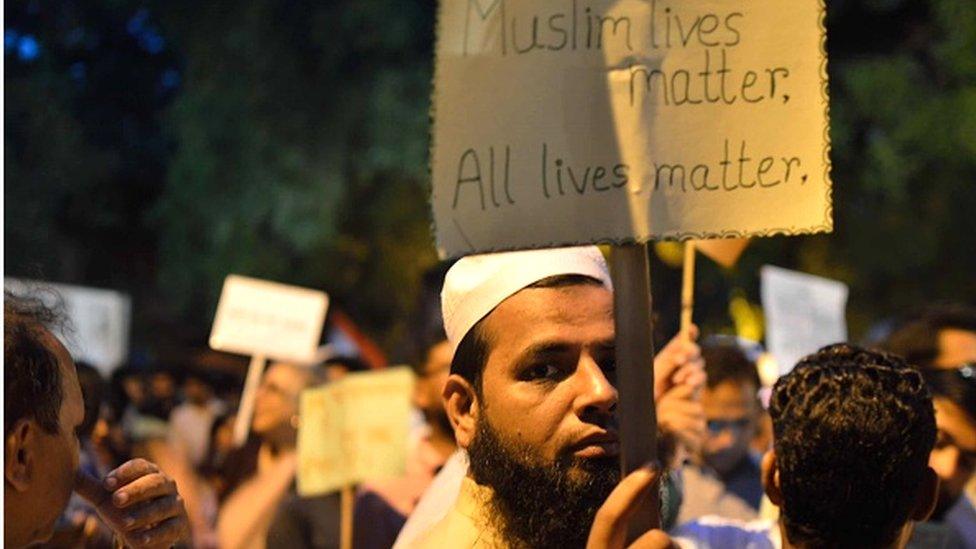Jahangirpuri: Shock and anger in Delhi after religious violence
- Published
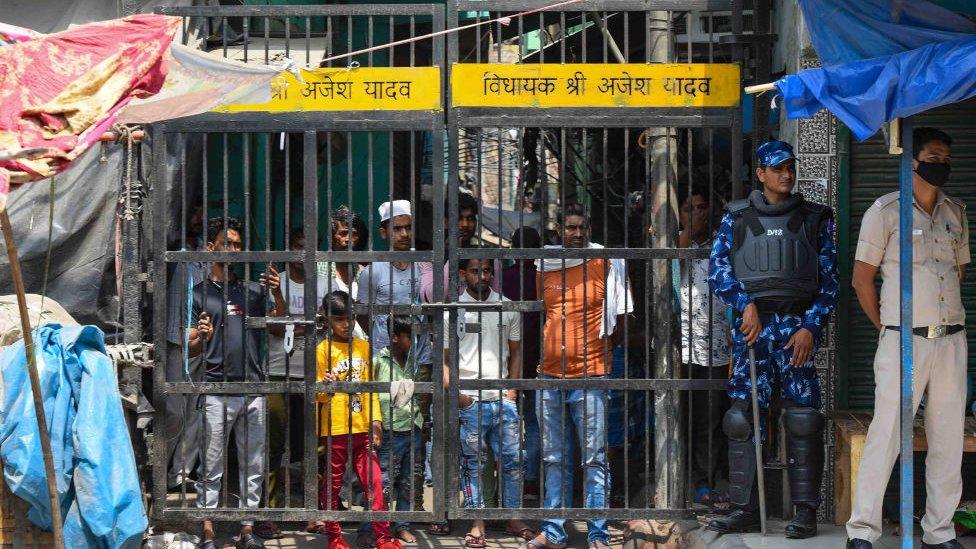
The violence has left Jahangirpuri residents in shock
After a religious procession sparked communal violence in Delhi's Jahangirpuri, BBC Hindi's Vineet Khare visited the crowded neighbourhood to find locals seething with anger and distrust.
Around nine people - including seven police personnel - were injured in the violence, which broke out on Saturday. One of the policemen was hit by a bullet.
The atmosphere in the relatively poor neighbourhood, which has a large Bengali-speaking Muslim population, was still tense a couple of days later.
Eyewitnesses say tensions flared after hundreds of people - including many members of right-wing Hindu organisations - marched to celebrate the birth anniversary of Hindu god Hanuman. Videos show participants dancing and chanting religious slogans, with many holding swords and tridents.
The march passed a mosque, and that's where the trouble broke out. Stones were thrown, triggering the violence.
Both sides blame the other. The marchers say they came under an organised attack by Muslims, who threw stones and other sharp objects from rooftops.
Muslims deny this, saying that Hindus yelled provocative slogans near the mosque, leading to an argument. The first stone, they allege, came from the other side.
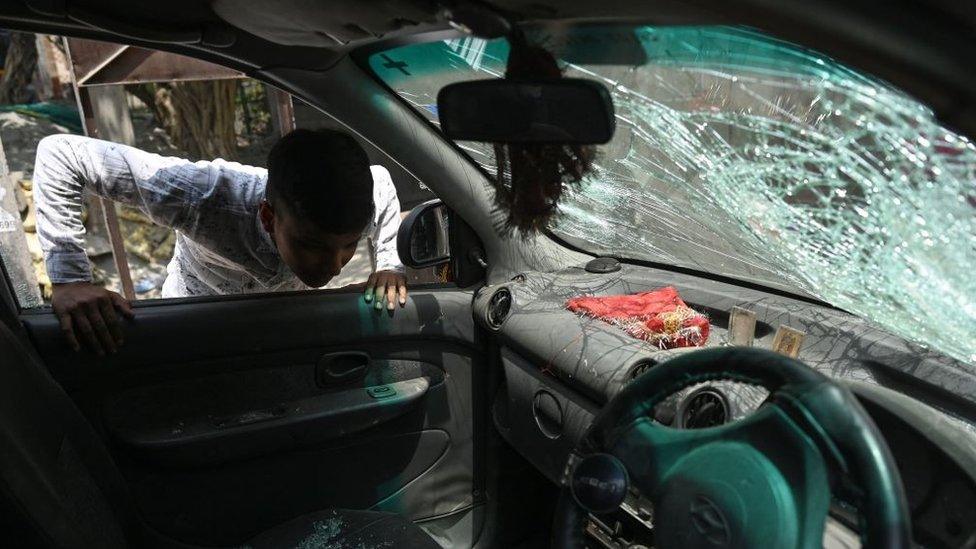
Vehicles were damaged during the violence
The Delhi police have arrested 23 people, including two minors. The police's crime branch is still investigating how the violence began. They are also looking into allegations by local Bharatiya Janata Party (BJP) leaders that "illegal immigrants from Bangladesh" were behind the violence.
The flare-up - the biggest in Delhi since the 2020 riots that killed more than 50 people, mostly Muslims - was similar to others that recently broke out in some other northern Indian states such as Madhya Pradesh and Rajasthan.
There too, violence began after religious processions to celebrate the Ram Navami festival passed near mosques.
After the Jahangirpuri incident, 13 opposition parties issued a joint statement, expressing shock at Prime Minister Narendra Modi's silence.
"This silence is an eloquent testimony to the fact that such private armed mobs enjoy the luxury of official patronage," they said.
Religious polarisation has soared in India since 2014, when Mr Modi's Hindu nationalist government swept to power. Festivals, in particular, have become frequent flashpoints for communal violence.
Differing versions
When BBC Hindi visited Jahangirpuri, residents were glued to mobile phones and news channels, watching and sharing their takes on viral videos and news coverage.
Some of them insisted that this was the first time such religious tensions had broken out in the area. But many local Hindus were angry, saying their procession had been attacked without any provocation.
Sukhen Sarkar, the organiser of Saturday's march, was at the centre of a group of men sitting opposite the local Hanuman temple.
"We were unarmed and not in a mood to fight. It felt like a shower of stones and glass shards hit us," he said, showing bruises on his foot.
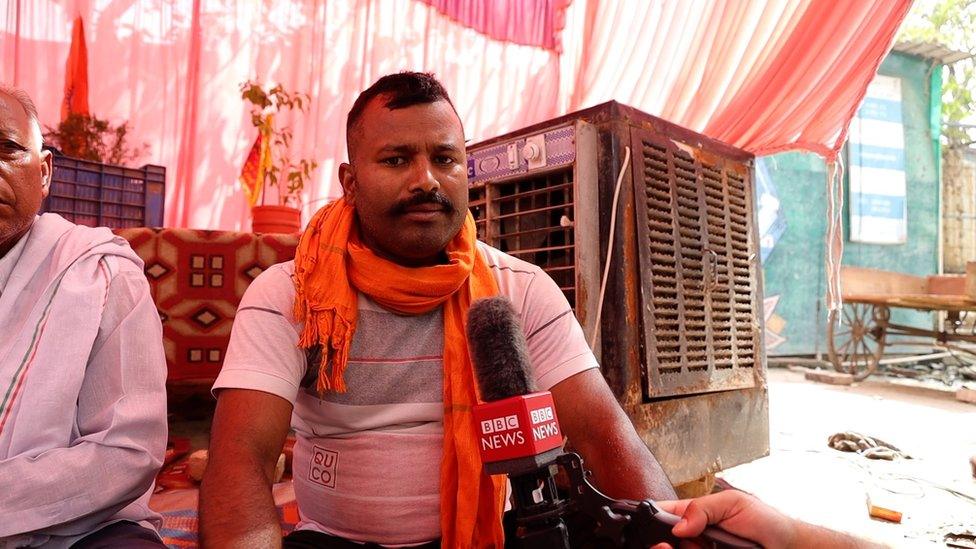
Sukhen Sarkar organised the religious procession for Hanuman Jayanti
As he continued speaking, others around him became emotional and agitated.
"The attack was planned. We were surrounded and attacked with stones, swords and knives," said a furious Gaurishankar Gupta, who was part of the procession.
The men also alleged that the culprits used petrol bombs and pistols and looted a vehicle carrying grains.
A few hundred metres away, near the mosque, the Muslims had a different story to tell.
Mosque manager Mohammed Salahuddin said Muslims reacted only after the marchers threw stones and tried to force their way into the mosque.
"When our boys saw the mosque was under attack, they couldn't tolerate it," he said.
He denied allegations that stones were thrown from the mosque's roof.
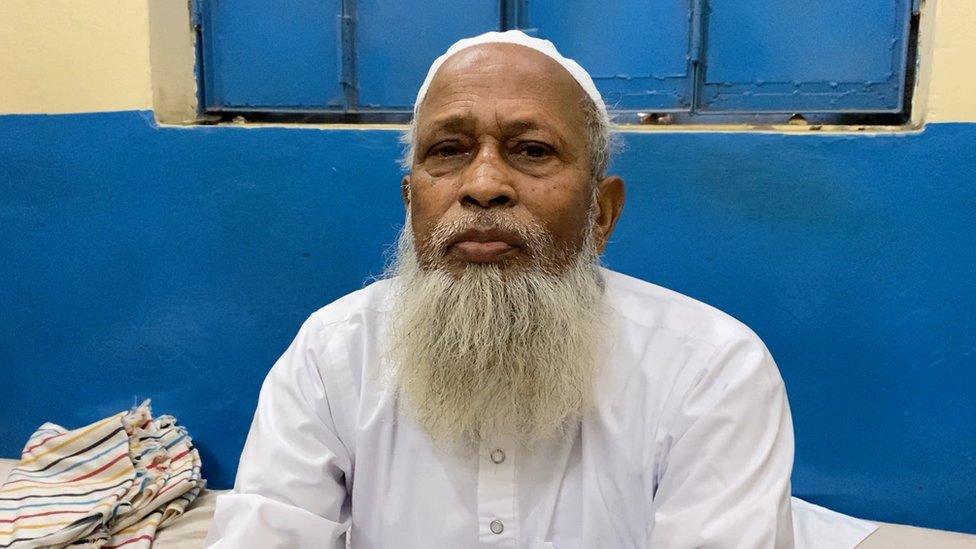
Mohammed Salahuddin said Muslims reacted after the marchers tried to force their way into the mosque
Local BJP leaders have alleged for years that Jahangirpuri has a large proportion of illegal immigrants from Bangladesh.
The Muslims deny this, saying they are migrants from West Bengal, Uttar Pradesh and Bihar. Most of them work as labourers or scrap sellers for low wages.
"You can check our documents," said Sazda, a resident, who lamented that Muslims were treated like criminals due to skewed media coverage.

You may also be interested in:
Uttar Pradesh: 'The police killed our son, but no-one believes us'

Related topics
- Published21 February 2022
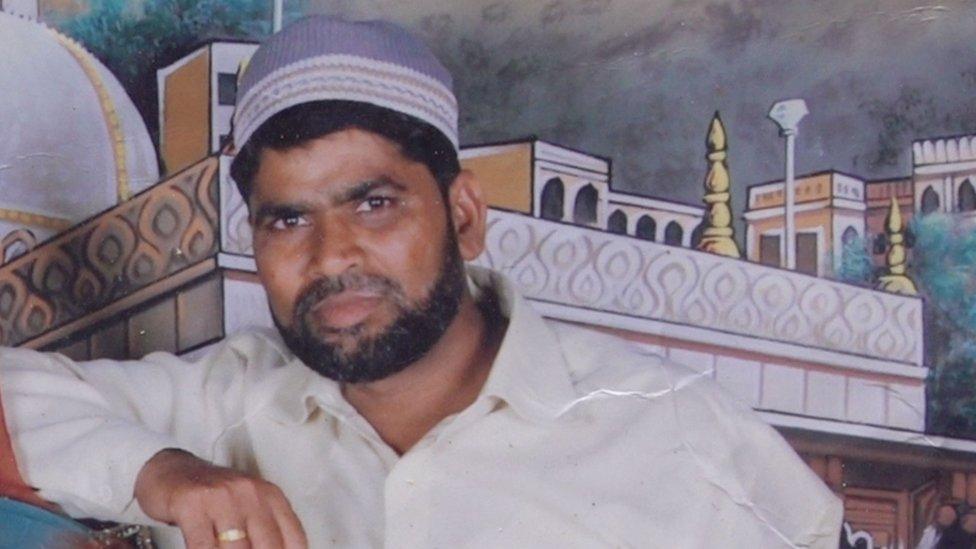
- Published2 September 2021
